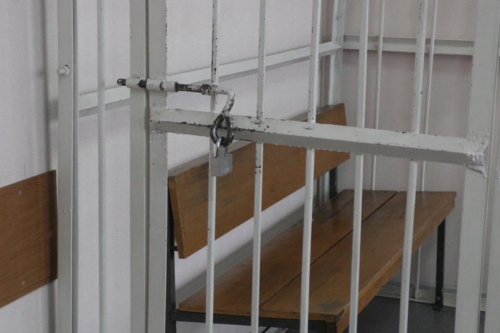
Man detained in Grindr 'sting' leaves Qatar
A British-Mexican man convicted of drug charges in Qatar and detained there for several months has been allowed to return to the UK.
Manuel Guerrero Aviña, a gay man, says he was targeted purely based on his sexuality and that his detention was “a breach of [his] human rights.”
The 44-year-old was arrested in February in what his family called a “honeytrap operation” involving the gay dating app Grindr, and was given a six-month suspended sentence plus a £2,100 fine, against which he unsuccessfully tried to appeal.
Qatar insists Mr Guerrero Aviña’s case was solely about the possession of drugs, which his family say were planted on him during the arrest.
A statement posted on X said that the former airline manager, who is HIV positive and claims he was not given regular access to his usual medication, was travelling to the UK for treatment for a few days before going on to Mexico.
The Manuel Guerrero Committee – a group formed by Mr Guerrero Aviña’s family to campaign for his release – said they were glad he was free from the “claws of the homophobic state of Qatar”.
They also thanked the people of Mexico and Britain, as well as the wider LGBT community and the media, for their support.
They said: “Manuel and his family thank you for your tireless support in this emblematic struggle against injustice, against homophobia and in favour of human rights for all people.”
James Lynch, co-director of human rights organisation FairSquare, who is also a former British diplomat in Qatar, said the incident had been a “horrendous ordeal” for Mr Guerrero Aviña.
He said: “I don’t underestimate how much of a toll this experience will have taken on him.
“Amongst other things, he went through a terribly unfair trial that UN experts have raised serious concerns about, and was deprived of his HIV medication in prison.
“I hope he can find time and space in the coming weeks and months for rest and recovery.”
Mr Guerrero Aviña’s family previously told the BBC that he was using Grindr in February and arranged to meet a man at his apartment in Doha.
However, when he went to the lobby to meet the man, he was detained by Qatari police officers, despite having no previous criminal record, they said.
His brother claimed that Mr Guerrero Aviña had methamphetamine planted on him and was then “pressured” into accepting it was his.
At a hearing in Doha in June, Mr Guerrero Aviña was found guilty of being in possession of an illegal substance and given the fine.
After an unsuccessful appeal, he has now been given permission to leave the country.
Homosexuality is illegal in Qatar, with punishments including fines and prison sentences.
BBC News has contacted Qatari officials for comment and is awaiting a response.
A Qatari official has previously insisted that his arrest was on the basis of possession of illegal substances and that “no other factors were taken into account”.
They said Mr Guerrero Aviña had been treated with dignity and respect, and that a test had confirmed the presence of drugs in his system at the time of his arrest.
Amnesty International described his treatment in custody and trial as “utterly horrific”.
The Mexican Ministry of Foreign Affairs said that both British and Mexican diplomatic staff accompanied Mr Guerrero Aviña to Hamad International Airport in Doha for his flight back to the UK.
They also thanked the British government for its support during his time in detention.
Judge in Qatar issues decision in the case of Manuel Guerrero Aviña
Press Release No. 289
- Since his detention, the Foreign Ministry has provided Mr. Guerrero with legal assistance, translators, support during hearings and help with medication, and has been in constant communication with his family and legal representative.
- Mr. Guerrero will leave Qatar in the coming days, following the suspension of his June 4 sentence.
The Foreign Ministry reports that a hearing was held on July 31 regarding the case of Manuel Guerrero Aviña, a British-Mexican citizen. Today, the judge issued his decision confirming the sentence imposed at the June 4 hearing.
In response, Mexico’s Ambassador to Qatar, Guillermo Ordorica Robles, contacted Manuel Guerrero, who stated he would arrange his departure from Qatar in the coming days, with the assistance of his lawyer. As it has done since his arrest, the Mexican embassy will continue to provide support and follow-up until the case concludes.
Since March 17, Mr. Guerrero has been on provisional release. The case has been handled in coordination with the British Embassy in Qatar, due to his residence in that country as a British citizen. The Mexican Embassy has provided follow-up and support from the outset of the case: after his arrest, Mexican diplomatic personnel in Doha were the first to visit him, providing translation assistance, facilitating access to medication, putting him in contact with the lawyer representing him, and meeting with his family in Qatar on February 11 and March 10 and 16, respectively.
Mexican diplomatic staff, accompanied by his translator, visited him on February 6 and March 5 and 12, and met with him at the embassy on April 18 and 24, May 27, and on June 27 with his mother. These actions are in addition to the Foreign Ministry’s ongoing contact with his family to keep them informed of the case’s progress and outlook. Notably, the Mexican Embassy and the Foreign Ministry’s Directorate General for Protection and Strategic Planning contacted health authorities to facilitate and send him sufficient medication for a six-month period.
The Foreign Ministry and the Mexican Embassy in Qatar acknowledge the valuable efforts made by their counterparts in London, Doha and Mexico City on behalf of Mr. Manuel Guerrero Aviña. The Foreign Ministry reaffirms its commitment to protecting and defending the rights and interests of Mexican citizens abroad, in keeping with its longstanding traditions and consular practices.
Man targeted in Qatar Grindr 'sting' lodges appeal
A British-Mexican man convicted of drug charges in Qatar has appealed against the verdict, saying the trial was unfair and that he was targeted because of his sexuality.
Manuel Guerrero Aviña said he “was convicted because I am gay and that is a breach of my human rights”.
The 44-year-old airline manager was arrested in February in a police sting through the gay dating app Grindr. His family says a small quantity of drugs were planted on him at the time.
He was given a six-month suspended sentence last month. Qatar has previously insisted Mr Guerrero Aviña’s case was solely about possession of drugs.
In a statement released after lodging his appeal, he described the verdict as unfair and said: “I was convicted on the basis of an unjust trial, after facing torture and ill-treatment during my preliminary detention, and am appealing on that basis.”
He added: “I urge the Qatari authorities to review my case and address the violations of due process, including torture to try to force me to name sexual partners, forced fingerprint signatures on Arabic documents, denial of legal and translation rights, and inhumane detention conditions for 44 days.”
He called on the UK and Mexican governments to raise concerns with Qatari authorities about “these injustices”.
Mr Guerrero Aviña’s family previously told the BBC that he was approached by a man on Grindr and in February arranged to meet the man at his apartment in Doha.
However, when he went down to the lobby to meet the man, he was arrested by Qatari police officers – despite having no prior trouble with the authorities, they said.
His brother has claimed that Mr Guerrero Aviña did not use drugs and that methamphetamine was planted on him – which he was then “pressured” into accepting was his.
A Qatari official has previously insisted that his arrest was on the basis of possession of illegal substances and that “no other factors were taken into account”.
They said Mr Guerrero Aviña had been treated with dignity and respect, and that a drug test had confirmed the presence of drugs in his system at the time of his arrest.
But Amnesty International last month described his treatment in custody and unfair trial as “utterly horrific”.
It urged the Qatari authorities to overturn his conviction and end “the discrimination and persecution of people based on their sexual orientation”.
Homosexuality is illegal in Qatar, with punishments including fines and prison sentences.
James Lynch, co-director of human rights organisation FairSquare, is a former UK diplomat in Qatar.
He said: “Manuel is determined to prove his innocence and we just have to hope that the Qatari appeal court takes a long hard look at all the deep flaws with the way his case was handled, from the start when he was targeted in a Grindr sting to the way he was denied his HIV medication in prison, to pressure him to put his thumb to a so-called confession.”
The BBC has not been able to independently verify all of the claims made by Mr Guerrero Aviña and his family – although previous reports suggest others have had similar experiences with the Qatari authorities.
Man arrested in Qatar Grindr 'sting' sentenced
A British-Mexican man who was arrested in Qatar in what his family called a “honeytrap operation” on gay dating app Grindr has been given a six-month suspended sentence and will be deported.
Manuel Guerrero Aviña, 44, was found guilty of being in possession of an illegal substance at a hearing in Doha and fined £2,100.
His family say police planted drugs in his apartment and Mr Guerrero Aviña believes he was targeted by the sting because he is gay.
Human rights group FairSquare called his trial a “travesty of justice” but Qatari officials insist the airline worker’s arrest in February was solely due to drug offences.
Mr Guerrero Aviña has called the verdict – which he is considering appealing – a human rights breach and says he was targeted because of his sexuality.
He said: “Although I welcome the fact that I can leave the country, I still condemn the unfair trial I have been subjected to and the torture and ill treatment I endured during my preliminary detention”.
Mr Guerrero Aviña, an airline worker, said he is “taking advice” on his options.
Qatari prosecutors have up to 30 days to appeal the sentence, meaning he can’t leave the country immediately, even if he were to accept the verdict.
James Lynch, co-director of human rights organisation FairSquare and former British diplomat in Qatar said the case was a “travesty of justice.”
Homosexuality is illegal in Qatar, but the family of Mr Guerrero Aviña say he had lived a normal life there for the past seven years and had never been in trouble with the authorities before.
The case hit the headlines internationally when his family claimed he was targeted on gay dating app Grindr, after arranging to meet a man called “Gio”.
But he was instead met by police and arrested on drug charges, in what his family called a “honeytrap operation”.
After 42 days in a detention centre, Mr Guerrero Aviña was released on the condition he handed over his passport.
He was forced to thumbprint a confession written in Arabic, without the help of a translator or access to a lawyer’s advice, his family say.
Qatari officials insist the 44-year-old’s arrest was “for possession of illegal substances on his person and in his apartment” and that “no other factors were taken into account”.
They added that tests for illegal substances in his system had come back positive for amphetamine and methamphetamine.
Amnesty International described the tests as “questionable” and not up to international standards. Mr Guerrero Aviña denies taking any drugs.
Aya Majzoub, Amnesty International’s Deputy Regional Director for the Middle East and Africa, said in a statement that authorities in the country must overturn Mr Guerrero Aviña’s “outrageous conviction and lift his travel ban”.
“There are serious fears that [he] was targeted for his sexual orientation and was coerced into providing the authorities with information that they could use to pursue a wider crackdown on LGBTI individuals in Qatar”.
HIV charities had also launched interventions in the case after claims Mr Guerrero Aviña, who is HIV positive, had not had regular access to his medication, which keeps the virus under control.
Mr Guerrero Aviña’s family have told the BBC that his usual treatment, prescribed by British doctors, ran out in mid-April.
The UK’s National Aids Trust told the BBC he urgently needs to return to the UK for the medication as it is not available in Qatar, and he may have built up resistance to it, which would make it less effective.
Deborah Gold, CEO of National Aids Trust, said: “We are hugely concerned that he will not be able to access the ongoing medical care and treatment that is his human right while in Qatar.”
Mr Guerrero Aviña’s brother Enrique told the BBC: “My brother is facing punishment in Qatar because he is gay.”
“We will keep fighting until justice is serviced and until Manuel is safely back home.”
A Qatari official said: “Contrary to certain media reports, no other factors were taken into account when making the arrest, and Mr Aviña has been treated with respect and dignity throughout his detention.”
Gay Man Jailed in Qatar Provisionally Freed Pending Investigation
A gay British-Mexican, who was entrapped by police in Qatar on Grindr, has been provisionally released from prison after a global campaign for his freedom.
Manuel Guerrero Aviña was arrested and jailed in the capital Doha by local police after being lured to a meeting on 4 February.
A former British Airways manager, the 44-year-old was allegedly denied access to his ARV medication which, as a man living with HIV, put his health and life at risk.
A campaign to free Manuel was mounted by his brother, Enrique, and saw several protests in Mexico and the UK calling for his release.
On Monday, Enrique announced on social media that Manuel had been provisionally released from jail but, despite not being formally charged, still faces being prosecuted because of his sexuality.
He described the news as an important victory as it means that Manuel can continue his legal process in Qatar “out of the hands of those who have subjected him to torture away from those who have denied him his medication.”
He asserted, however, that it doesn’t resolve the root of the issue; the criminalisation of homosexuality and the continued investigation against his brother.
He revealed that Manuel had also not yet been provided with HIV medication but Enrique expressed hope that this would soon change.
He also thanked the global LGBT community, and British and Mexican diplomats for their solidarity and efforts. “Thank you for fighting alongside us and for shouting together with us that being gay is not a crime,” he said, adding in the caption that “the fight continues until he is back home free and without charges.”
Qatar’s Penal Code punishes same-sex relations with up to seven years in prison. Muslims convicted of homosexuality in sharia courts can be sentenced to death by stoning, although it’s thought to be rarely enforced.
In 2022, Human Rights Watch reported several horrific incidents in which security police in Qatar arrested and ill-treated LGBT people ahead of the nation’s controversial hosting of the World Cup that year.
Calls for release of Mexican man in Qatar detained for being gay and living with HIV
A Mexican national living in Qatar, was arrested on 4 February for being a gay man and living with HIV, and calls for his release have been issued, as he has been ill-treated and tortured.
A Committee set up in his defence reported that the Mexican national is being held in a prison in the Qatari city of Doha, where he has been denied antiretroviral treatment.
It was alleged that in order to detain him for his sexual orientation, Catari police used a fake profile on Grindr, a dating app, to contact him and invite him to participate in a meeting with other LGBT+ people.
The committee explained that he was supposed to meet on 4 February with the person he had arranged to meet on the dating app but “found police officers waiting to arbitrarily arrest him”. They added that during the arrest they planted methamphetamines on him to frame him for the crime of drug possession.
“From the moment of his arrest, he has been the victim of cruel, inhuman and degrading treatment, as well as acts of psychological torture: authorities tried to force him to identify more members of the LGBTTTIQ+ community in his telephone contacts, and forced him to witness the suffering of other detainees while they were being whipped,” the committee said.
They added that he has been isolated and threatened, deprived of food and water, denied his right to a lawyer, and forced to sign documents in Arabic without a translator present.
Demands
The committee in his defence demanded that the Ministry of Foreign Affairs (SRE) issue a response to the request submitted in the case and that the Mexican government intervene through its embassy in Mexico for his immediate release and repatriation.
It also demands that the Mexican Embassy in Qatar investigate and clarify the arbitrary detention, fabrication of crimes, physical and psychological torture, as well as the effects on Manuel Guerrero’s state of health.
Also that the representative of Qatar in Mexico issue a public apology for the criminalisation of a person belonging to the LGBT+ populations.
The committee members also requested that the United Nations, through its Special Procedures of the Human Rights Council, issue an urgent appeal to safeguard the life, integrity and freedom of the Mexican.
“Sexual orientation is not a crime, it is a human right,” the committee said.
In that country, homosexuality is considered against the law because it is considered “immoral” according to Islamic Sharia law.
Exigen liberación de mexicano en Qatar, detenido por ser gay y vivir con VIH
A X la policía le tendió una trampa para detenerlo, a través de una aplicación de citas.
X, mexicano radicado en Qatar, fue detenido el pasado 4 de febrero por ser un hombre gay y vivir con VIH, por lo que han pedido la liberación del connacional, quien ha recibido malos tratos y tortura.
El comité X acusó que el mexicano se encuentra en una cárcel ubicada en la ciudad catari de Doha, donde le han negado el tratamiento antirretroviral.
Se denunció que para detenerlo por su orientación sexual, la policía catari usó un perfil falso de Grindr, una aplicación de citas, para contactarlo e invitarlo a participar en una reunión con otras personas de las poblaciones LGBT+.
El comité describió que X se quedaría de ver el 4 de febrero con la supuesta persona con la que acordó la cita en la aplicación de citas pero “encontró a oficiales de la policía que lo esperaban para detenerlo de manera arbitraria”. Añadieron que durante la detención le sembraron metanfetaminas para incriminarlo en el delito de posesión de drogas.
“Desde el momento de su detención, X ha sido víctima de tratos crueles, inhumanos y degradantes, así como actos de tortura psicológica: autoridades intentaron forzarlo a identificar en sus contactos telefónicos a más integrantes de la comunidad LGBTTTIQ+, y le obligaron a presenciar el sufrimiento de otras personas también detenidas mientras eran azotadas”, señaló el comité en defensa del mexicano.
Añadieron que ha sido aislado y amenazado, además de privarlo de alimentos y agua.Le han negado también su derecho a tener un abogado y lo obligaron a firmar documentos en árabe sin una persona traductora presente.
Exigencias
El comité en defensa de X exigió a la Secretaría de Relaciones Exteriores (SRE) emitir una respuesta a la solicitud entregada ante el caso y que intervenga el Gobierno de México mediante la Embajada en ese país para su liberación inmediata y repatriación.
También se exige que la Embajada de México en Qatar investigue y esclarezca la detención arbitraria, fabricación de delitos, tortura física y psicológica, así como las afectaciones derivadas del estado de salud de X.
También que el representante de Qatar en México emita una disculpa pública por la criminalización de una persona perteneciente a las poblaciones LGBT+.
Los integrantes del comité solicitaron además que Naciones Unidas, a través de sus Procedimientos Especiales del Consejo de Derechos Humanos, emita una apelación urgente para salvaguardar la vida, integridad y libertad del mexicano.
“¡La orientación sexual no es un delito, es un derecho humano!”, sentenció el comité.
En ese país, la homosexualidad es considerada contraria a la ley porque se consideran “inmorales” según la sharia islámica.




